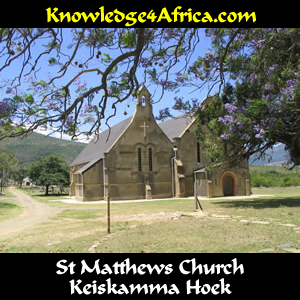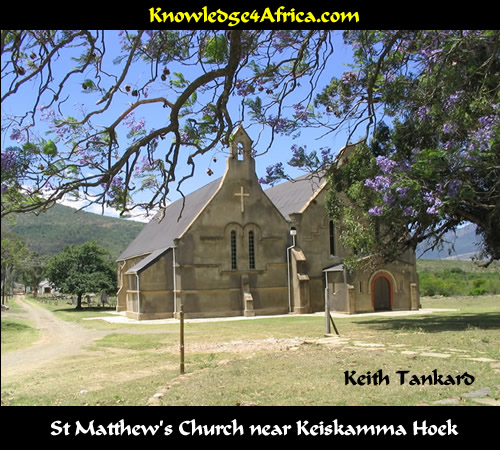|
READ THIS
Walter Brownley arrives at St Matthias mission station. The major characters are thereupon introduced
to the reader.
This is a critical chapter because it makes major statements about each and every person.
 COLONIALISM
COLONIALISM
It is generally true that the majority of the English at the Cape Colony in about 1900 were colonialist by
nature.
In fact, they were mostly people who had been born in England although some, like Victor Drake, were
first generation immigrants, i.e. they were born in South Africa of parents who had immigrated earlier.
The most important characteristic of the colonialists was that they thought like Englishmen. England was
"home".
They believed in the essential nature of being English, and that this should be forced upon the indigenous
population as a way of enlightening them.
Religion was a critical aspect of being English. Indeed, they believed it imperative to inculcate their
version of Christianity upon the Black people.
At the same time, their own children were to be prevented from coming into contact with traditional
customs like circumcision rituals and ancestor worship.
Language was another important value. The typical colonialists insisted that all people around them
should learn to speak English, and generally frowned upon their children learning an African language.
They treated Afrikaans in the same light -- Afrikaners must learn to speak English.
The English also believed that their own social customs -- i.e. their manner of dress, speech, social
mores, etc. -- were superior to all others.
Black South Africans were therefore to wear English clothing, adopt English manners and conventions,
use the British economic system and preferably live in English-style houses rather than in traditional huts.
Indeed, a Black family which lived in a Xhosa-style house was taxed more heavily than those living in
English-style houses!
Yet it went further than this. The English tended to see "the other" as inferior. Although they did
attempt to turn the Xhosa people into Black Englishmen, they never believed this to be entirely possible.
Their philosophy was that all people could be equal, but some would always remain more equal than
others.
A perfect example is found in Benedict Matiwane. He was Christian, worshipped in a Church of England
community, spoke English and wore English clothing -- and was even considered to be "part of the
Farborough family".
Yet he was never allowed further into the Farborough house than the kitchen. Indeed, Benedict was never
really "family" at all but was rather a glorified servant.
One notices that Emily Farborough strictly forbade Frances and Crispin speaking Xhosa. They were
meant to speak only English -- and the servants were then to be forced to learn English and so become
"civilized".
It was very clear that Emily disapproved when Walter Brownley told Benedict that he must teach him to
speak Xhosa.
Have you looked at the questions
in the right column?
|




